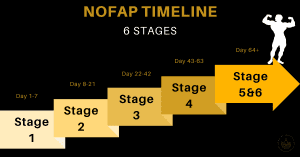It’s a well-known fact that what you eat can have a significant impact on your health and wellbeing. But, did you know that not eating can also lead to some severe health issues? One of the most unexpected consequences of not eating is erectile dysfunction. Yes, you read that right! In this article, we’ll uncover the shocking truth about how not eating can lead to erectile dysfunction, and why you must keep reading to understand the science behind it. Get ready to be surprised and learn something new about your body!
The Shocking Truth About How Not Eating Can Lead to Erectile Dysfunction
When it comes to maintaining a healthy sex life, most people think about exercise, good sleep, and a balanced diet. However, what many don’t realize is that skipping meals or restricting calories can also affect sexual performance, leading to conditions such as erectile dysfunction (ED). In this article, we’ll explore the link between not eating and ED, and why it’s essential to fuel your body correctly if you want to keep your sex life healthy.
The Basics of Erectile Dysfunction
Before we dive into the relationship between diet and ED, let’s first understand what ED is. Erectile dysfunction is a condition where a man has trouble achieving or maintaining an erection during sexual activity. While it’s normal to experience occasional erectile difficulties, persistent ED can indicate an underlying health condition such as heart disease, diabetes, or high blood pressure.
The Connection Between Diet and Erectile Dysfunction
A healthy, balanced diet is essential for overall health, including sexual function. When you don’t eat enough or skip meals, your body doesn’t get the nutrients it needs to function correctly. This can lead to a nutrient deficiency, which can affect the blood vessels and nerves responsible for erections.
Caloric Restriction and Erectile Dysfunction
Caloric restriction is a popular weight loss strategy that involves limiting calorie intake to lose weight. While it can be effective for weight loss, caloric restriction can also impact sexual function. Studies have shown that men who follow a low-calorie diet for an extended period may experience a decline in testosterone levels, which can affect sexual desire and performance.
The Role of Protein
Protein is an essential nutrient for sexual health and function. It’s necessary for building and repairing tissues, including those involved in erections. When you don’t get enough protein, your body may not produce enough nitric oxide, a chemical that helps relax blood vessels and improve blood flow, which is essential for getting and maintaining an erection.
The Importance of Carbohydrates
Carbohydrates are the primary source of energy for your body, including your sexual organs. When you don’t eat enough carbs, your body may not have enough energy to perform sexually. Additionally, low-carb diets can lead to a decrease in testosterone levels, which can affect sexual function.
The Impact of Vitamins and Minerals
Vitamins and minerals play a crucial role in sexual health and function. For example, vitamin D is necessary for testosterone production, while zinc is essential for sperm production. When you don’t get enough of these nutrients, it can affect your sexual health.
The Dangers of Fasting
Fasting is a popular health trend that involves abstaining from food for a set period. While there may be some health benefits to fasting, it can also have a negative impact on sexual function. Studies have shown that fasting can lead to a decrease in testosterone levels, which can affect sexual desire and performance.
The Benefits of a Balanced Diet
A balanced diet is essential for overall health, including sexual function. By eating a variety of nutrient-dense foods, you can ensure that your body gets the nutrients it needs to function correctly. This includes plenty of protein, carbohydrates, vitamins, and minerals.
The Connection Between Obesity and Erectile Dysfunction
On the other end of the spectrum, being overweight or obese can also affect sexual function. Obesity can lead to conditions such as high blood pressure, high cholesterol, and diabetes, all of which can impact sexual health. Additionally, excess weight can put pressure on the blood vessels and nerves responsible for erections, making it more challenging to achieve and maintain an erection.
The Bottom Line
When it comes to sexual function, what you eat matters. Skipping meals, restricting calories, or following fad diets can all impact sexual health. To maintain a healthy sex life, it’s essential to eat a balanced diet that includes plenty of protein, carbohydrates, vitamins, and minerals. Additionally, maintaining a healthy weight and managing any underlying health conditions can also help improve sexual function.
When it comes to sexual health, many factors come into play, and diet is just one of them. However, it’s an important one that shouldn’t be overlooked. A healthy diet that includes a variety of nutrient-dense foods can help improve sexual function, while a poor diet can lead to conditions such as ED.
In addition to diet, exercise and sleep are also important for sexual health. Regular exercise can improve blood flow, which is essential for getting and maintaining an erection. Good sleep can also help improve sexual function, as it allows your body to recharge and repair.
It’s also important to note that stress can play a significant role in sexual function. High levels of stress can lead to conditions such as anxiety and depression, which can affect sexual desire and performance. Finding ways to manage stress, such as through meditation or therapy, can help improve sexual function.
When it comes to diet, it’s important to focus on whole, nutrient-dense foods. This includes lean protein sources such as chicken and fish, complex carbohydrates such as whole grains and vegetables, and healthy fats such as nuts and seeds.
If you’re struggling with ED or other sexual health concerns, it’s essential to talk to your healthcare provider. They can help determine the underlying cause of your symptoms and recommend appropriate treatment options.
In conclusion, maintaining a healthy sex life requires attention to many factors, including diet, exercise, sleep, and stress management. By focusing on a balanced, nutrient-dense diet and addressing any underlying health conditions, you can help improve sexual function and overall health.
Frequently Asked Questions
The Shocking Truth About How Not Eating Can Lead to Erectile Dysfunction
Why does not eating cause erectile dysfunction?
When you don’t eat enough, your body doesn’t produce enough energy to keep all your systems running smoothly. This includes your reproductive system, which needs a steady supply of nutrients to function properly. Without enough nutrients, your body can’t produce the hormones necessary for sexual arousal and performance.
How long does it take for not eating to cause erectile dysfunction?
The timeline varies from person to person, but generally, it takes a few weeks to a few months of not eating enough for your body to start experiencing symptoms like erectile dysfunction. However, if you have a preexisting condition like diabetes or heart disease, you may experience symptoms sooner.
Can erectile dysfunction caused by not eating be reversed?
Yes, in most cases, erectile dysfunction caused by not eating can be reversed by adopting a healthier diet. Eating a variety of nutrient-dense foods can help improve your overall health and restore your reproductive system’s function. However, if you have an underlying medical condition, you may need additional treatment to fully resolve the issue.
Key Takeaways
- Not eating enough can lead to erectile dysfunction by depriving your body of the nutrients it needs to function properly.
- The timeline for developing erectile dysfunction from not eating varies but can take a few weeks to a few months.
- Erectile dysfunction caused by not eating can often be reversed by improving your diet and overall health.
Conclusion
While it may seem surprising, not eating enough can indeed lead to erectile dysfunction. This is because your body relies on a steady supply of nutrients to keep all your systems running smoothly, including your reproductive system. By adopting a healthy, balanced diet, you can improve your overall health and restore your sexual function. If you’re experiencing symptoms of erectile dysfunction, it’s essential to talk to your doctor to rule out any underlying medical conditions and develop a treatment plan that works for you.



